Photo credits: The Tuscaloosa News/The Montgomery Advertiser
Autherine Juanita Lucy (pictured left) is an American activist who was the first African-American student to attend the University of Alabama (UA) in 1956.
Lucy’s expulsion from the institution later that year led to university President Oliver Carmichael‘s resignation. Years later, UA admitted her as a master’s student. In 2010, a clock tower was erected in her honor. Lucy was born on Oct. 5, 1929, in Shiloh, Alabama. Her father Milton Cornelius Lucy and her mother Minnie Maud Hosea were sharecroppers; she was the youngest child in a family of five sons and four daughters.
The family-owned and farmed 110 acres. Lucy’s father also did blacksmithing, made baskets, and ax handles to supplement their income. After attending public school in Shiloh through grade ten, Lucy attended Linden Academy in Linden, Alabama. She graduated in 1947 and went on to attend Selma University in Selma, Alabama for two years. After that, she studied at the historically black Miles College in Fairfield.
She graduated from Fairfield, Alabama’s Miles College with a BA in English in 1952.
The Racial Integration of UA and Lucy’s Fight For Education Equality
In September 1952, Lucy and a friend, Pollie Myers, a civil rights activist with the NAACP, applied to the UA. Lucy later said that she wanted a second undergraduate degree, not for political reasons but to get the best possible education in the state. Although the women were accepted, their admittance was rescinded when the authorities discovered they were not white.
Backed by the NAACP, Lucy and Myers charged UA with racial discrimination in a court case that took almost three years to resolve. While waiting, Lucy worked as an English teacher in Carthage, Mississippi, and as a secretary at an insurance company. On June 29, 1955, the NAACP secured a court order preventing UA from rejecting the admission applications of Lucy and Myers (later became Pollie Hudson after marrying).
Lucy was finally admitted to UA but the school rejected Hudson; on the grounds that a child she had conceived before marriage made her an unsuitable student. Even though Lucy was officially admitted, she was still barred from all dormitories and dining halls. Days later, the court amended the order to apply to all other African-American students seeking admission.
At least two sources have said that the board hoped that without Hudson, (the more outgoing and assured of the pair and whose idea it originally was to enroll at Alabama) Lucy’s own acceptance would mean little or nothing to her. The sources said the board thought she would voluntarily decide not to attend. But Hudson and others strongly encouraged her. On February 3, 1956, Lucy enrolled as a graduate student in library science.
She became the first African American ever admitted to a white public school or university in the state.
Violence, Racial Hatred, and the UA Riots Post Brown v Board
Lucy attended her first class on Friday, February 3, 1956. On Monday, February 6, 1956, riots broke out on the campus and an angry white mob of more than a thousand men pelted the car in which the Dean of Women at UA drove Lucy between classes. Threats were made against her life and UA’s president’s home was stoned. The police were called to secure her attendance.
To date, at that time, the UA riots were the most violent, post-Brown, anti-integration demonstration in U.S. history. After the riots, UA suspended Lucy from school because her own safety was a concern. Lucy was known and described as “the architect of desegregating Alabama’s education systems.” Thurgood Marshall helped win the 1954 landmark Supreme Court desegregation case, Brown v. Board of Education.
The Brown decision said that racial segregation in public schools was unconstitutional and thus, illegal. Marshall had a great amount of confidence that if the Supreme Court decided something, then the rest of the country will follow its decision. Attorneys for Lucy and the NAACP, including Arthur Shores and Marshall, helped build a lawsuit against UA.
The a believed the school helped the white mob by not having protection for her and thus, prevented Lucy from attending class. With the support from the National Association for the Advancement of Colored People (NAACP), including Thurgood Marshall, who acted as one of Lucy’s lawyers, engaged in a series of legal proceedings lasting from 1953 until 1955. Lucy is still living at the age of 91 today.
In May 2019, Lucy attended the University of Alabama’s spring graduation, where the school presented her with an honorary doctorate.
A portion of this page’s content was sourced from a Wikipedia article. The contents are publicly available under the CC BY-SA 4.0 license.
*BlackThen.com writer/historian Victor Trammell edited and contributed to this report.

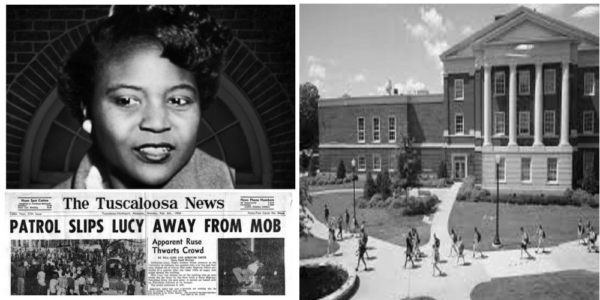





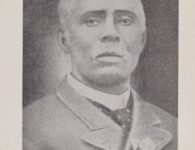
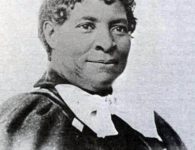





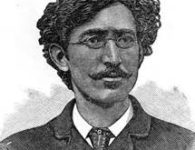
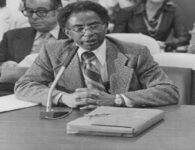
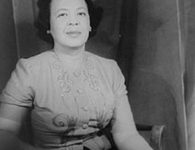



No comments